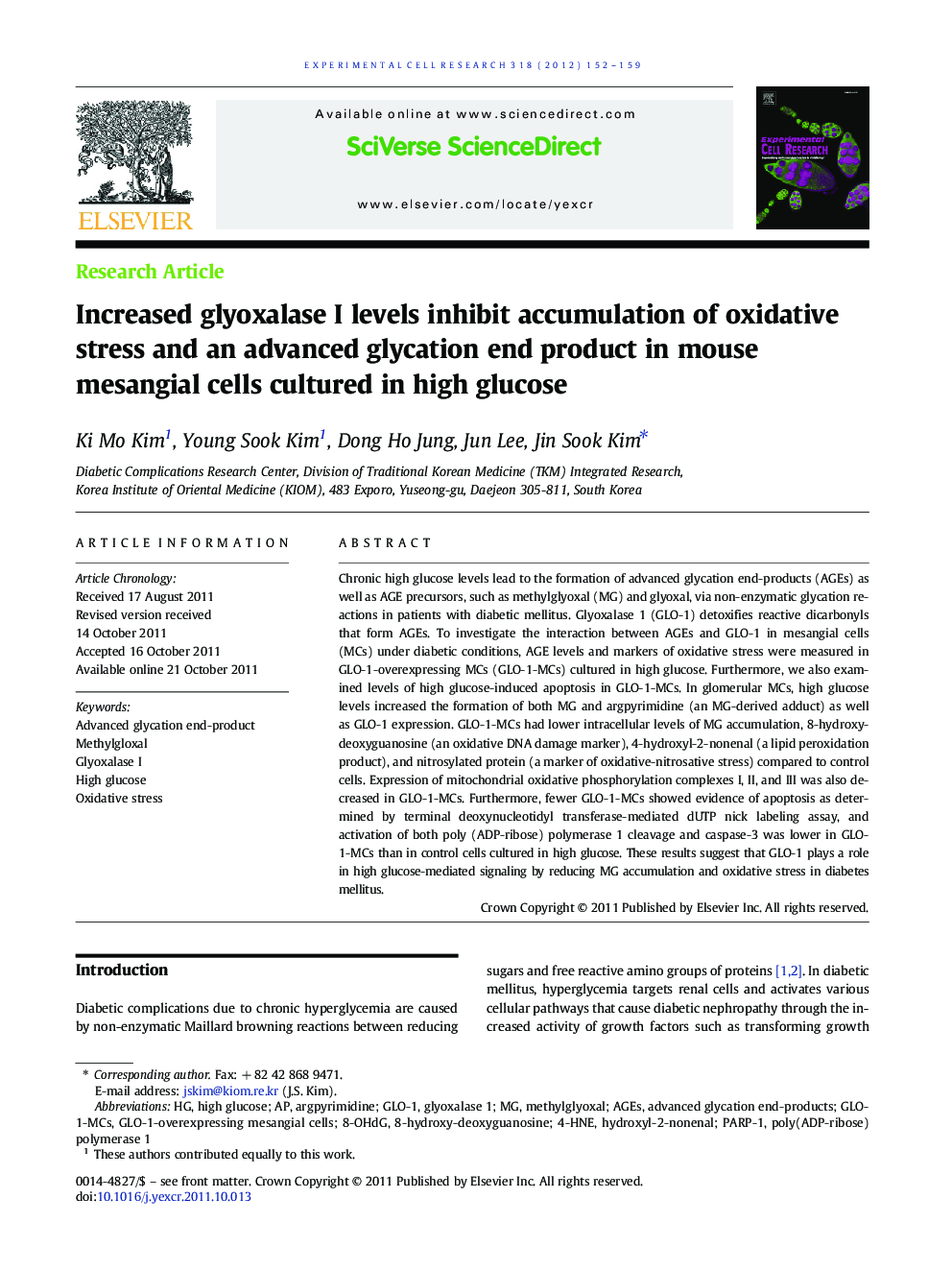| کد مقاله | کد نشریه | سال انتشار | مقاله انگلیسی | نسخه تمام متن |
|---|---|---|---|---|
| 2131048 | 1086618 | 2012 | 8 صفحه PDF | دانلود رایگان |

Chronic high glucose levels lead to the formation of advanced glycation end-products (AGEs) as well as AGE precursors, such as methylglyoxal (MG) and glyoxal, via non-enzymatic glycation reactions in patients with diabetic mellitus. Glyoxalase 1 (GLO-1) detoxifies reactive dicarbonyls that form AGEs. To investigate the interaction between AGEs and GLO-1 in mesangial cells (MCs) under diabetic conditions, AGE levels and markers of oxidative stress were measured in GLO-1-overexpressing MCs (GLO-1-MCs) cultured in high glucose. Furthermore, we also examined levels of high glucose-induced apoptosis in GLO-1-MCs. In glomerular MCs, high glucose levels increased the formation of both MG and argpyrimidine (an MG-derived adduct) as well as GLO-1 expression. GLO-1-MCs had lower intracellular levels of MG accumulation, 8-hydroxy-deoxyguanosine (an oxidative DNA damage marker), 4-hydroxyl-2-nonenal (a lipid peroxidation product), and nitrosylated protein (a marker of oxidative-nitrosative stress) compared to control cells. Expression of mitochondrial oxidative phosphorylation complexes I, II, and III was also decreased in GLO-1-MCs. Furthermore, fewer GLO-1-MCs showed evidence of apoptosis as determined by terminal deoxynucleotidyl transferase-mediated dUTP nick labeling assay, and activation of both poly (ADP-ribose) polymerase 1 cleavage and caspase-3 was lower in GLO-1-MCs than in control cells cultured in high glucose. These results suggest that GLO-1 plays a role in high glucose-mediated signaling by reducing MG accumulation and oxidative stress in diabetes mellitus.
► High glucose causes an increase in formation of AGE and GLO-1 expression in MCs.
► GLO-1 overexpression reduces high glucose-increased MG formation.
► GLO-1 overexpression reduces expression of mitochondrial oxidative phosphorylation complexes.
► Overexpression of GLO-1 blocks high glucose-induced apoptotic cell death in MCs.
Journal: Experimental Cell Research - Volume 318, Issue 2, 15 January 2012, Pages 152–159